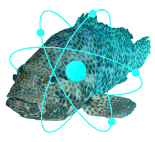Speakers
Description
For all of us non-native speakers to learn English has been a challenge at a certain point in our lives. It is said that chemists, physicists, engineers, lawyers, philologists speak in a different language from the rest of society. The discovery of radioactivity a century ago opened up a new field “nuclear science”. Nowadays Nuclear English is the most demanding English not only for specialists but also for society since there is a large, growing, and vital community of people who use the applications of nuclear science to tackle a wide-ranging set of problems in medicine, engineering and other fields of our life.
Probably that was the reason why we wrote a textbook “Nuclear Chemistry: improving professional skills in English” in 2011.
As a branch of chemistry, the activities of nuclear chemists frequently span several traditional areas of chemistry such as organic, analytical, inorganic, and physical chemistry. One term that is frequently associated with nuclear chemistry is that of radiochemistry. The term radiochemistry refers to the chemistry of radioactive substances. All radiochemists are, by definition, nuclear chemists, but not all nuclear chemists are radiochemists. Many nuclear chemists use nonchemical (physical) techniques to study nuclear phenomena, and it is not radiochemistry.
In this book we have tried to be as comprehensive as possible. We have attempted to present nuclear chemistry and the associated applications at a level suitable for an undergraduate student. Our aim was to convey the essence of the ideas and the blend of theory and experiment that characterizes nuclear chemistry. Our hope is that the reader can use this book for an introductory treatment of the subject and can use the end-of-unit references as a guide to more advanced and detailed presentations. A book like this one is in the curious position of being simultaneously “advanced” and “introductory”. It is advanced in the sense of building on grammatical, lexical rules and collocations important for non-native speakers of English. At the same time, students are being introduced into the field of Nuclear Chemistry.
We wrote in the preface “We really hope this book as a quick refresher course will be also helpful to professionals working within the realm of nuclear science who are non-native English speakers. This would include not only nuclear chemists, either trained or in training but also technologists, engineers, physicists, basic scientists”. Seven years have passed after the publishing of this book and today we have the strong opinion to enhance the content of the book towards “Nuclear Science”. In view of the fact that present-day students are digital by nature we are going to create blending online and onsite a hybrid course instead of printed book only.
The main thing is that we are looking for the enthusiasts among the representatives of nuclear engineering for cooperation on the creation of such a course.
